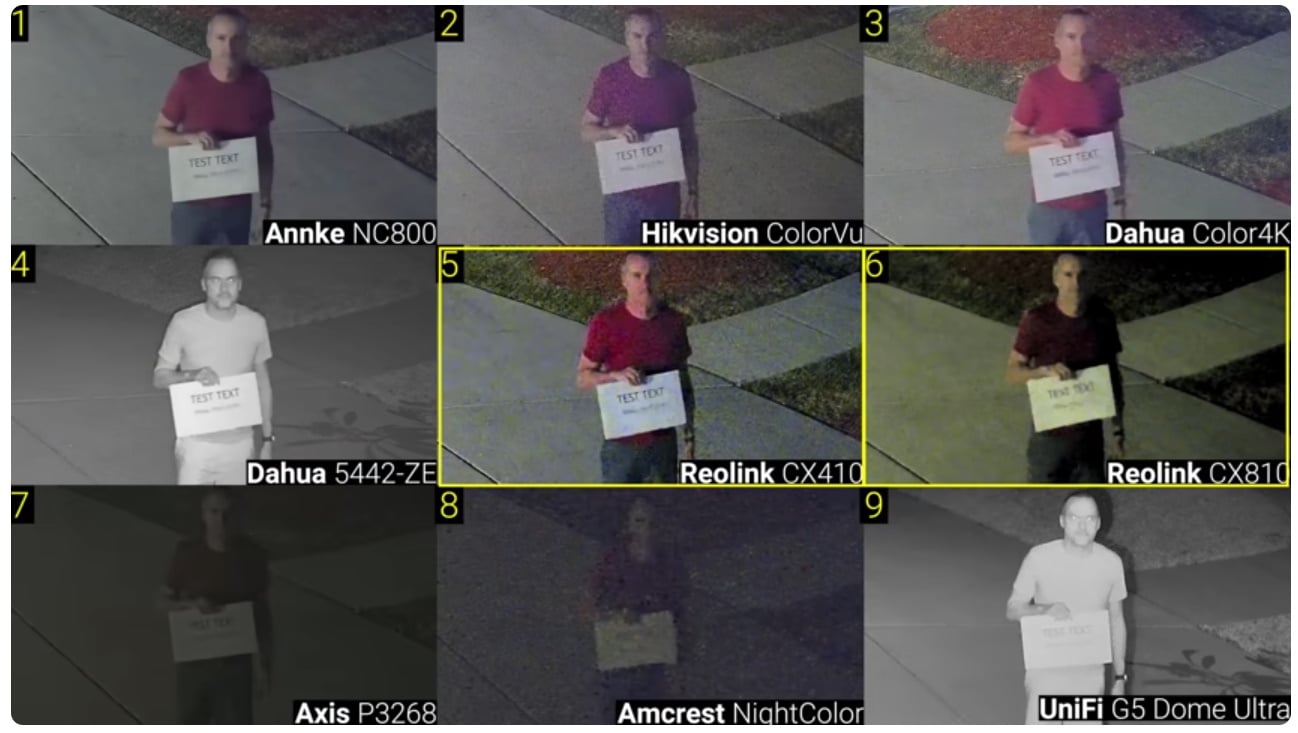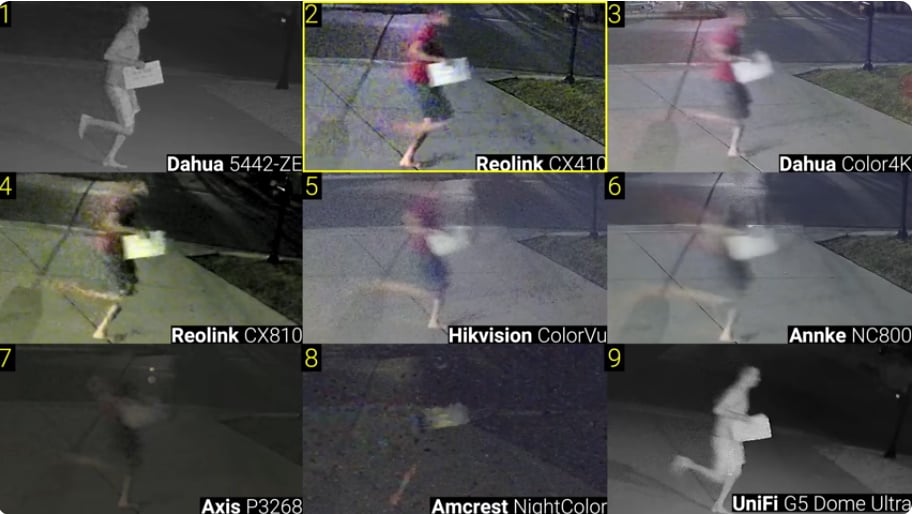Blue_Morpho
As I already said I have a lot of ubiquity hardware. I have a router, switch, and several wifi APs. I really want to go all Ubiquity for the convenience but their cameras are just bad at the same price as other products.
I've actually bought and compared them. I've had ip cameras in my home for almost 10 years now. I've tried many cameras over the years.
It's not just my opinion, every review rates Ubiquity's cameras low. You are paying for convenience of integration if you already have Ubiquity's products.
Hikvision has a $34 4 mp turret camera that outperforms the $130 2 MP Ubiquity in both dark and brightly lit environments. You can get them with color night vision or IR. Feature wise you can use them stand alone: you connect and control them with a web browser. You don't need to buy anything else. They have built in motion detection and will save to a microsd card. I use an NVR, but it's nice to have that feature if you are just getting started.
Same with Dahau. I like Hikvision for its web UI. But as I've already said, I don't trust them and block their Mac/IP at the router. Ideally you want them on their own vlan.
That's why I said don't trust it and block them at your router.
As long as you block them at your router Hikvision and Dahau are much better than the other brands at the same price. I've tried 6 different brands. I've been slowly moving them to all Hikvision.
Regular IP cameras don't require a sub and let you store everything locally (even to the point of a micro SD in the camera for backup).
Ubiquity cameras are ridiculously over priced for their quality. They charge $140 for a worse camera (image quality/ features) than a $40 ip camera that supports ONVIF so works with open source Linux NVR software.
Regular IP cameras support ONVIF so they can work with any software.
I have Unifi router, switch and wifi APs.
Anything that supports ONVIF. I like Hikvision for their quality, price, and web interface for setup. But don't trust any IP camera. Make sure the Mac and or IP address is blocked at your router.
There are different night visions to pick from. There's ir night vision and white led lit night vision. I prefer ir night vision because I don't want visible led lights on all night. You get a better picture at night although its black and white.
However many color night vision cameras do really well without any light source at all. I tried both and it's more of a preference so I can't say which one will work for you.
Ubiquity is the definition of vendor lock in.
It's never work in the US because holding private companies accountable for how they spend public money and maintaining well regulated competitive markets is communism or something
It did work in the US for many years. During the 90's the Internet was regulated like that. Phone lines, t1's etc were infrastructure that the ilec was required to provide at the same cost to isps they used internally to sell service to consumers.
Then Bush came in and ruled that fiber and cable were immune from those common carrier laws.
As others gave said, the solution is a VM but once setup correctly, you won't notice.
If Windows is your primary computer, install HyperV, the built in VM manager for Windows. Then create a Linux VM for your NAS.
Once setup, you won't even notice. HyperV auto saves and reloads the VM whenever you reboot. You don't even need a window open for the VM, it runs in the background until you run the manager to connect to the VM and see it in a window.
If Linux is your primary OS, do the reverse and put Windows in a Linux VM.
Don't hassle with Proxmox, etc. That's for running lots of VM's and toggling between them.


Ugh! Now I have the desire to play Super Star Trek. Because the cool kids in the computer club (they had very limited space in the computer room and I didn't get in) got to play it on the mainframe teletype.